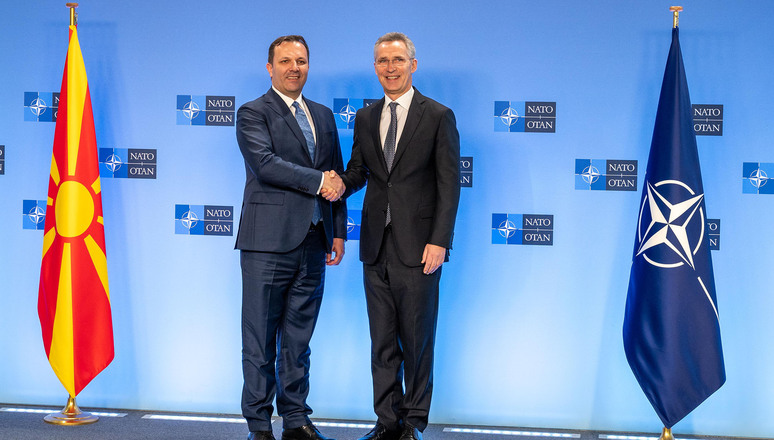
One-Tenth of the Parliament is Facing Charges Under Another Repressive Regime Backed by the U.S.
A comprehensive report by Macedonian Human Rights Movement International details the complete control by the United States over Macedonia’s judiciary, resulting in tremendous suffering by dissidents, in particular political prisoners, and the Macedonian population as a whole.
The United States exponentially increased its control in Macedonia with its installation of the SDSM regime in 2016-2017.
The U.S. at this time helped to force through the country’s highly derogatory name change to “North Macedonia.” The aim was to eradicate Macedonia’s name, identity and history, and to deny the existence of the Macedonian nation as a whole and, in particular, the existence of the large Macedonian minority of Aegean Macedonia (annexed by Greece in 1913).
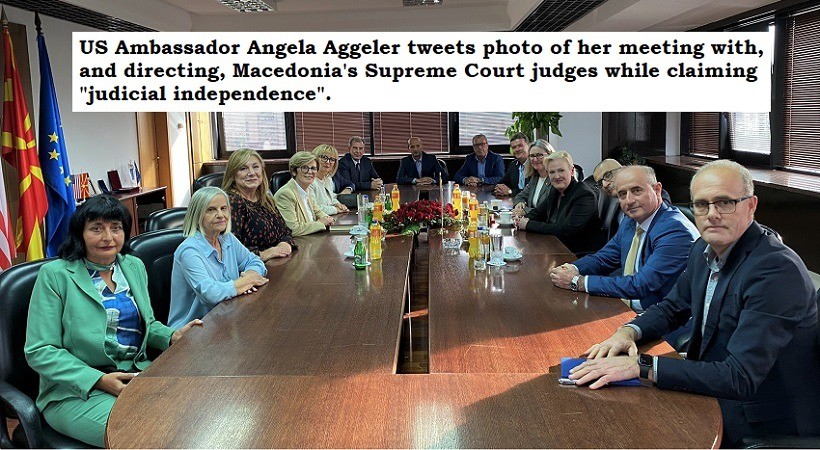
The U.S. engineered these events in order to appease Greece, so that it would lift its potential veto of Macedonia’s U.S.-imposed NATO membership bid.
Below is a discussion of the most controversial cases that broke the public trust in the Macedonian judiciary and mass violations of the rule of law:
April 27th trials: The biggest and most controversial trials are those covering the storming of the Parliament. The charges were originally aimed at the four nominal organizers of the protests—a group which included artists, an opera singer and a political commentator, three members of Parliament who opened the doors to the building from the inside allowing the protesters to enter, former Interior Minister Mitko Chavkov and several high-level police officials charged with not preventing the incident, and eight protesters.
A separate attempted murder charge covered the attack on Alliance of Albanians Party leader Ziadin Sela. As a result, seven people received sentences of between 10 and 13 years in prison, while two received shorter sentences after their charges were reduced from attempted murder to violent conduct. These two were subsequently attacked in Skopje, by suspected members of Sela’s party, and one of them was beaten to death.
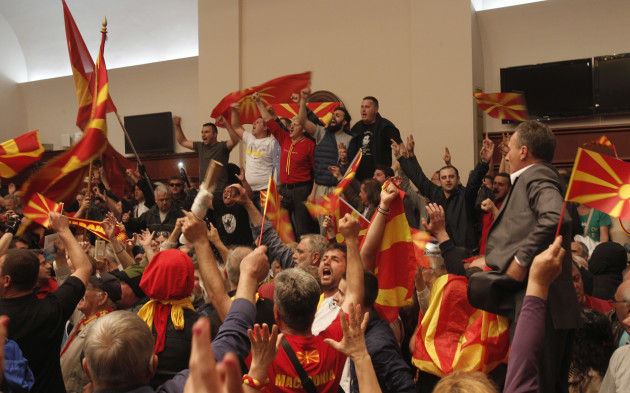
In early 2018, the protest organizers, members of Parliament, Interior Ministry officials and a select group of protesters were arrested and charges were filed. Early on it became clear that the purpose of the charges was to intimidate the three VMRO-DPMNE members of Parliament—Krsto Mukoski, Ljuben Arnaudov and Sasho Vasilevski.
While domestically the new SDSM regime said that its main priority was to fight the corruption and the alleged abuse of security services by VMRO-DPMNE, internationally, it was clear that its main purpose would be to accept the Greek demands to rename Macedonia and rewrite Macedonian history and national identity. This would in turn accomplish the main goal of SDSM’s international supporters—lifting the Greek veto and bringing Macedonia into NATO in light of the growing tensions in Ukraine.
SDSM leader Zoran Zaev signed a one-sided treaty with Greek Prime Minister Alexis Tsipras in the summer of 2018, which gave Greece all it wanted, but its implementation required changing the Macedonian constitution to impose a new name (the highly derogatory “North Macedonia”).
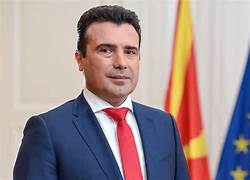
A referendum was called and it was a spectacular failure despite high-profile visits from the likes of Angela Merkel, Theresa May and James Mattis, all urging Macedonians to vote in favor of the name change.
The voter turnout was under 20%, while the United States and the SDSM regime claimed 35%, and even that number was reached with massive ballot stuffing in ethnic Albanian majority villages. Ethnic Macedonians largely opted to boycott instead of voting “no,” rightly believing that if the 50%+1 threshold in voter turnout were met, that it would end with rigging of the “no” votes.
Even after the referendum failed and the citizens refused to give their approval to the name change, SDSM and Zaev decided to go ahead and get to the necessary two-thirds majority in Parliament. But given the narrow outcome of the 2016 elections, and the evenly divided Parliament, SDSM turned the pressure on VMRO-DPMNE members of Parliаmеnt.
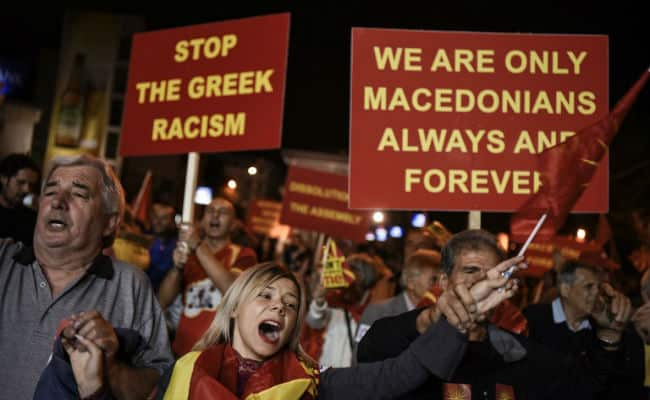
The three VMRO-DPMNE members of Parliament who were charged in the April 27th trials were detained, and pressure was put on them to break with their party and ignore the referendum vote, and vote in favor of the imposed name change.
After months of overt pressure, and confronted with the prospect of lengthy prison sentences if they refused to abide, the three MPs broke. The courts showed clear coordination with the regime and U.S. diplomats, who were coordinating the entire process. The detention orders were lifted just as the Parliament was moving closer to the crucial vote.
The three MPs negotiated a broader deal—a law that would amnesty them and the protest organizers, while keeping the rest of the protesters in prison.
Not only were Mukoski, Vasilevski and Arnaudov absolved of any criminal responsibility, they were feted as brave pro-Western voices by U.S. diplomats and received various perks—Mukoski’s construction company received lucrative government contracts, while Vasilevski had family members given comfy public sector jobs.
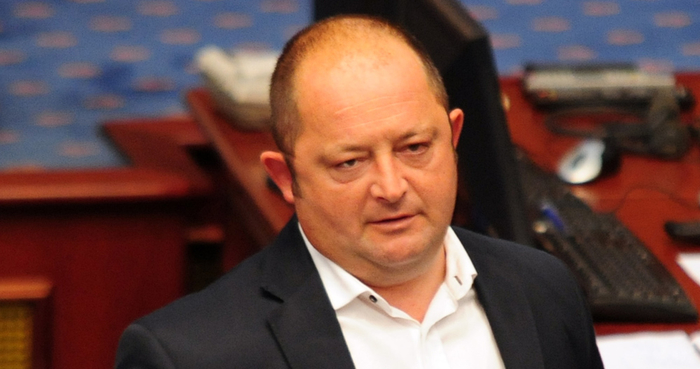
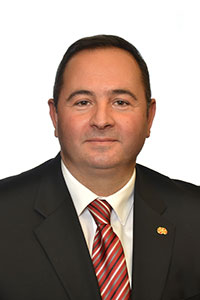
This turned the trial into a mockery. Protesters who were led by politicians in a two-year long propaganda operation that started with the Color Revolution and sincerely believed that their country and national identity were slipping away from them with the concessions made to Greece and the Albanians nationalists, were given long prison sentences, while the organizers of the protests were allowed to walk free and even profit from the whole operation.
Three of the protest organizers asked and received amnesty under the law that was rushed through Parliament. Opera singer Igor Durlovski refused the offer, counting on his high profile and reputation in the public that the Zaev regime would not dare convict him. In the end, he was the only defendant who was acquitted in the trial. The case was prosecuted and tried by two open loyalists of the SDSM party. Prosecutor Vilma Ruskoska was outspoken in her criticism of VMRO-DPMNE and judge Dobrila Kacarska saw her career skyrocket after the trial, and she is now President of the Constitutional Court.
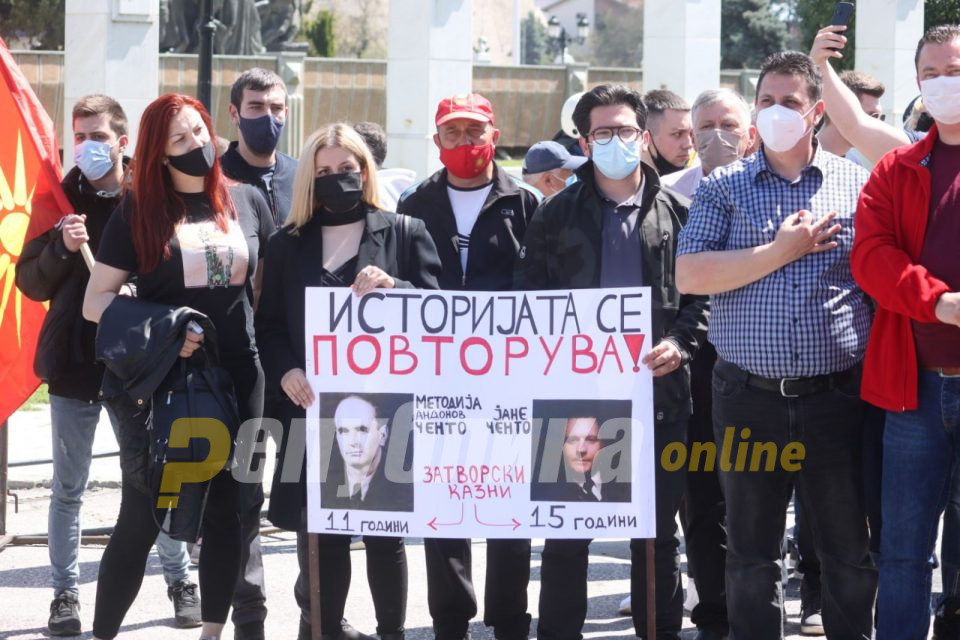
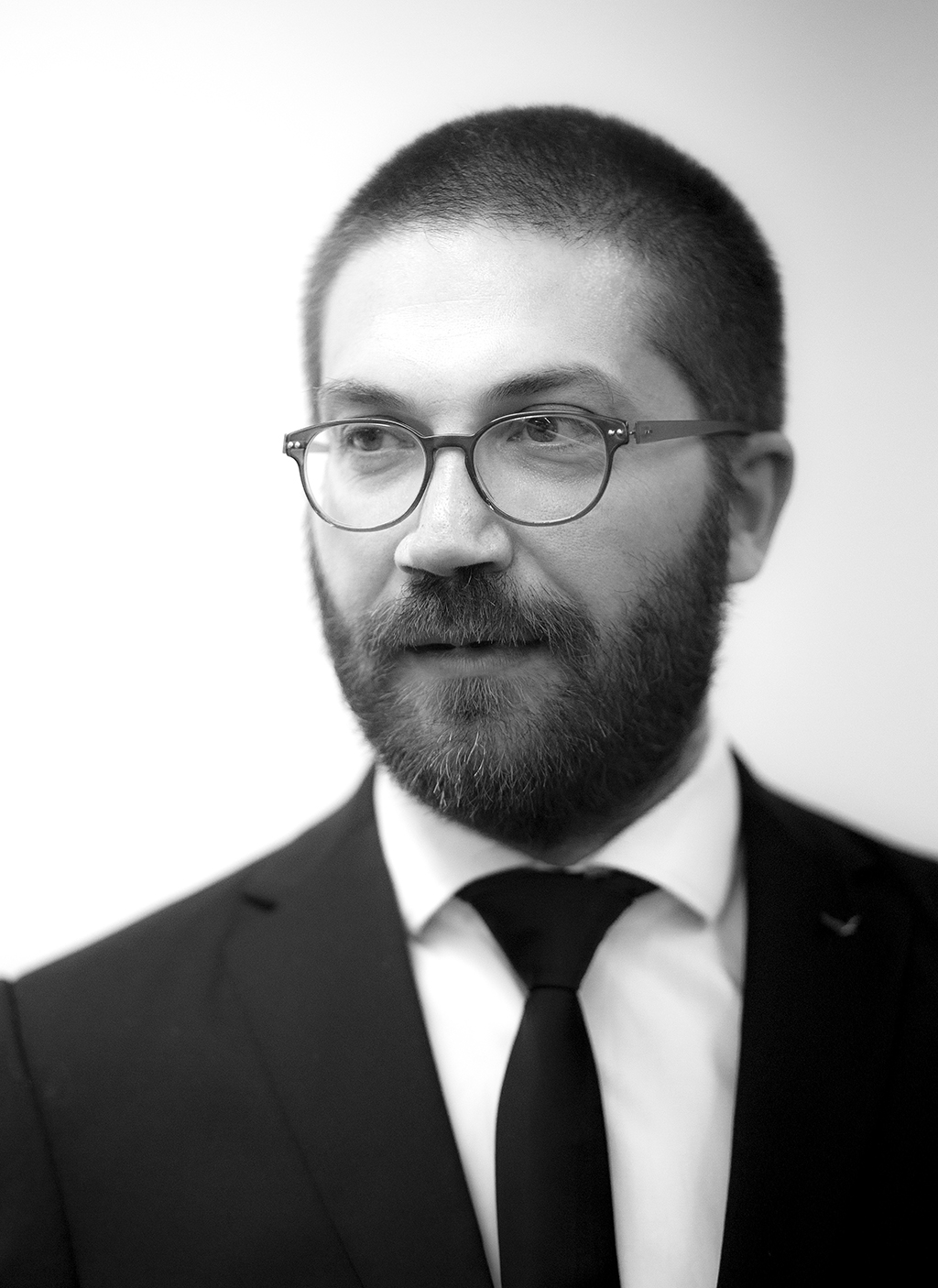
Following the amnesty for the select defendants, and their vote to rename Macedonia and rewrite Macedonian history along the Greek historical narrative, the trial progressed quickly.
In March 2019, Judge Kacarska handed sentences of over 200 years in total to the 16 defendants.
Former Interior Minister Chavkov was sentenced to 15 years in prison, as were two police officials.
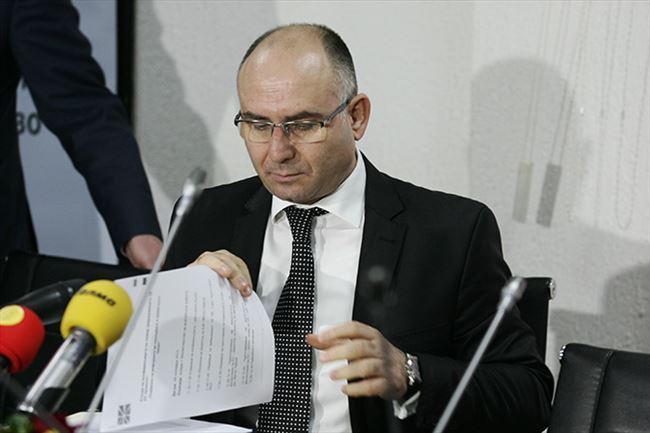
A group of protesters, including Jane Chento, great-grandson of Macedonia’s first post-war President Metodija Andonov Chento, who was persecuted by the Communist regime, were sentenced to prison terms of between 12 and 15 years. Chento received 15 years for kicking Zaev.
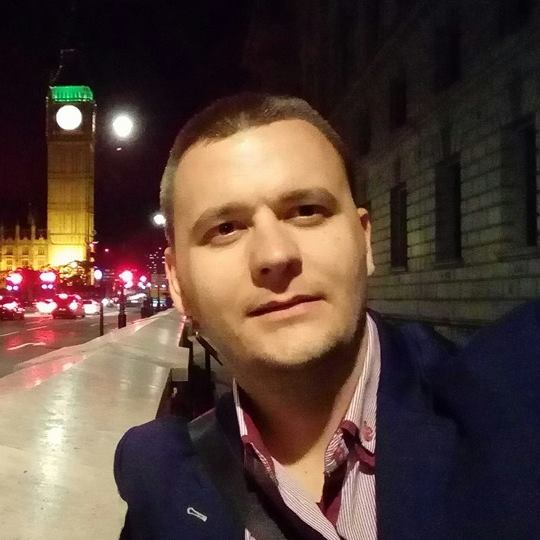
Given his political activism during the protests, during which he picked up the mantle of the legacy of his ancestor, Chento is currently considered the leader among the group of imprisoned protesters. In January 2019, he was attacked by guards and badly beaten.
His singling out from among hundreds of protesters is seen as a deliberate move by the SDSM regime to evoke the political persecution during Communist times and the elimination of political opponents. Chento was allowed to spend a weekend with his family in June 2023, for the first time since his arrest. It was the first time in six years that he saw his son outside of a prison setting.
To prevent President Gjorge Ivanov (VMRO-DPMNE) from giving pardons to the protesters, a charge of “terrorist endangerment of the constitutional order and security” was added to the list of charges. A president is not allowed to issue pardons to those charged with terrorism, and even if he attempted, the SDSM-dominated Justice Ministry announced that it would slow-walk his pardons.
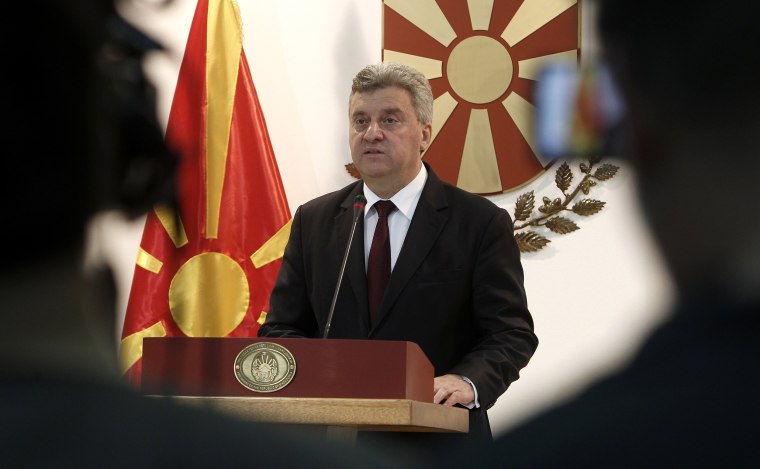
Eventually President Ivanov allowed his term in office to expire in 2019 without issuing pardons, allegedly threatened by SDSM, which hinted at launching anti-corruption investigations against him. Even current President Stevo Pendarovski, elected on the SDSM ticket as an enthusiastic supporter of the Color Revolution and opponent of VMRO-DPMNE, is on record stating that the charge of terrorism was exaggerated, but he has not used his power to grant amnesty.
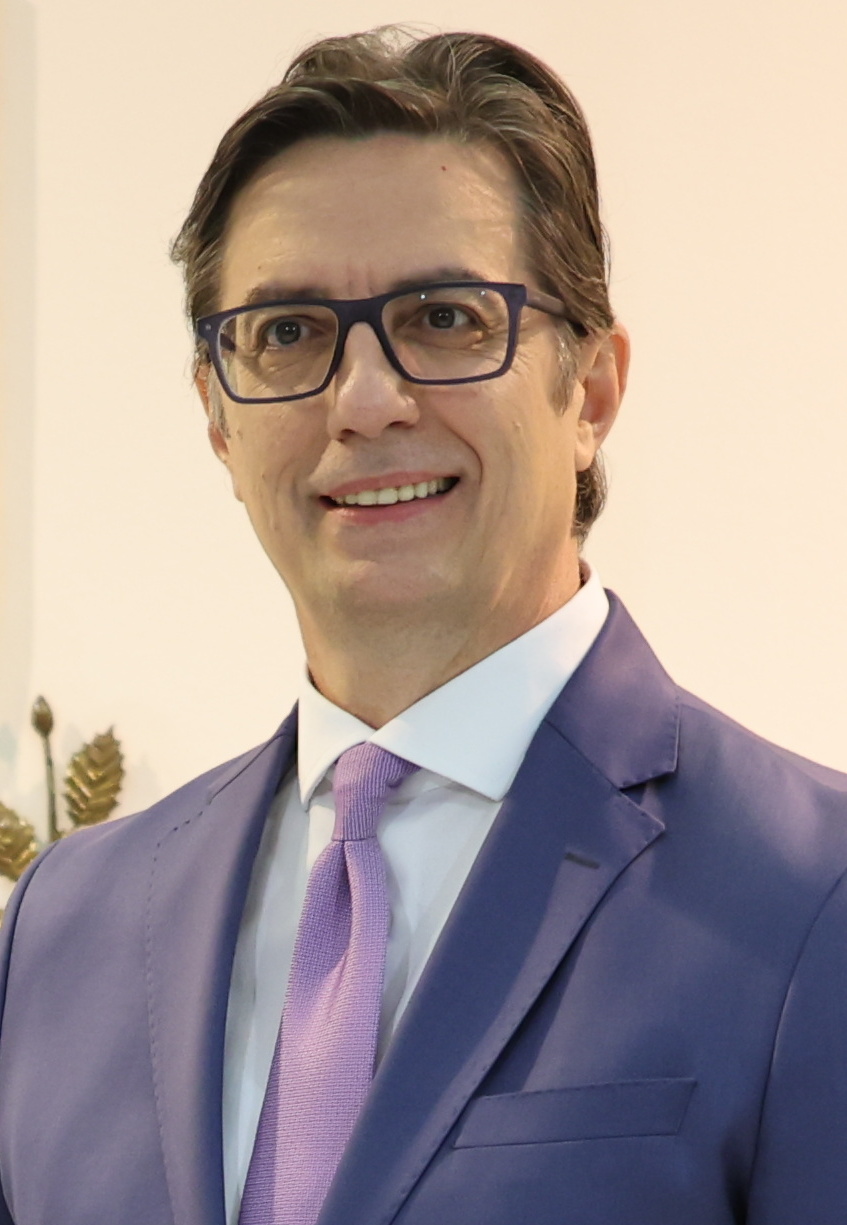
It is widely believed that keeping the remaining eight protesters in prison, while the protest organizers and the members of Parliament received pardons, is meant to intimidate citizens from joining future protests against the continued concessions that the SDSM regime makes, now primarily to Bulgaria. The direct message is: “Don’t rock the boat, see what happened to Jane Chento, it could also happen to you.”
The three votes that the SDSM regime secured with the April 27th trials were not enough—they were eight or nine votes short in total, depending on what you consider a two-thirds majority required to amend the Constitution. Another six votes were also secured from the VMRO-DPMNE group in Parliament and from their smaller coalition partners.
In some instances, this was done with clear abuse of the judicial system and blackmail, and in other cases—with bribery. The most shocking case was that of Vladanka Avirovik, elected through the small Socialist Party of Macedonia that was allied with VMRO-DPMNE. In one of the numerous high-profile criminal cases initiated by the SDSM party after the Color Revolution, Avirovik’s son was targeted.
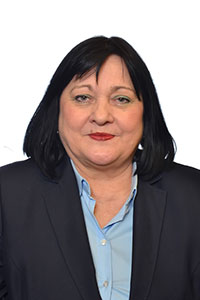
He worked in a mining company owned by SPM party leader Ljubisav Ivanov-Dzingo, who also owns Sitel TV, Macedonia’s largest television that hosted a popular show that opposed the Color Revolution. Avirovik was accused of being part of a bid to win a coal mining contract from the state-owned ELEM company, Macedonia’s largest electricity producer.
The goal of the charges was apparently to ensure both that Sitel TV changed its editorial policy (its key editors were also charged and were fired early in the SDSM reign) and that Avirovik voted for the name change. Vasilije Avirovik was sentenced to three years in prison.
After his mother agreed to join the “yes” group for the name change, in March 2019 the Skopje Appeals Court reduced his sentence to two years, allowing it to later be turned into a suspended sentence. So, a female member of Parliament was blackmailed with the imprisonment of her son and forced to change her vote, with full cooperation of the courts.
Another yes vote, that angered even the strongest SDSM supporters and shook even their faith in the judiciary, was that of former Culture Minister Elizabeta Kancheska-Milevska. Her department was tasked with funding a number of construction projects in downtown Skopje, including the rebuilding of the old museum destroyed in the 1963 earthquake, construction of new music halls, arches and adorning the city with monuments.
The so-called Skopje 2014 project was meant to revise the Communist brutalist style reimagining of the city that began after the earthquake, and to give it a neo-classical style, that would reflect the broader understanding of Macedonian history, evoking the country’s ancient past. This angered Greece which, laughably, claims the ancient history of the region.
It further angered the Yugoslav-educated SDSM elite, who have invested strongly in the “South-Slavic” theory of the origin of the Macedonians and prefer that the World War II partisan struggle, which they claim as their main source of legitimacy, is seen as the principal heroic myth of the country.
They accused minister Kancheska, and Prime Minister Nikola Gruevski who was the principal driver of this project, of corruption in the large construction projects that reached several hundreds of millions of euros. Kancheska was charged with abuse of office, but for a relatively small amount, under a million euros. After her decision to join with the other eight members of Parliament, what was a dynamic trial quickly turned into a slow, protracted process, with her trial dates constantly being postponed by the court.
Kancheska now faced a new legal drama. As the regime needed votes from VMRO-DPMNE again (more below), a new case was created. This time, Gruevski, Kancheska, former Finance Minister Zoran Stavreski, as well as the owner of one of the largest retail chains and the former Mayor of the Centar municipality (15 in all), were charged over the monuments that were put in place as part of the Skopje 2014 project.
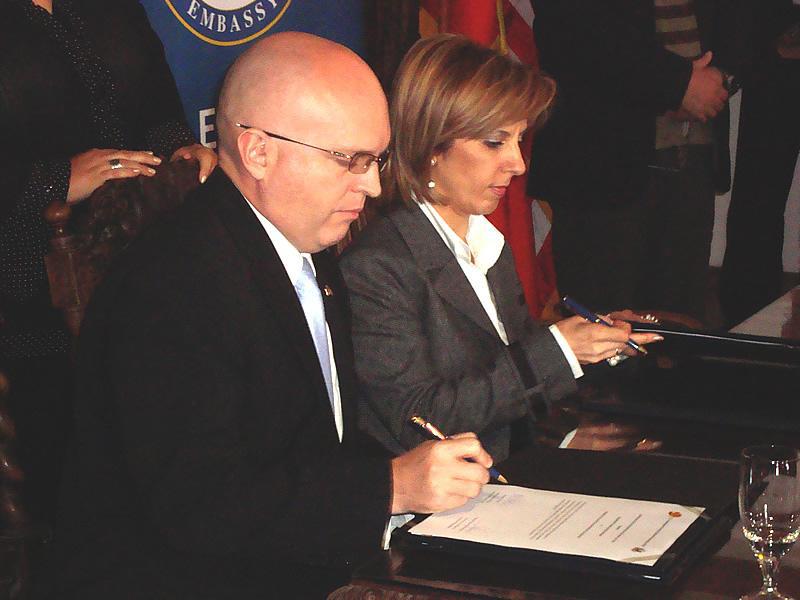
The prosecutors allege irregularity in the way the money was given by the government to the municipality, that was formally in charge of the project. Stavreski is one of the few people from Gruevski’s inner circle who is still active in the party, and it is likely that the case is raised now, a decade after the monuments were put in place, to see if he can be used to pressure members of Parliament to switch sides again.
Kancheska is being put on trial again, in what some call a deserved outcome for a person who sold her vote to stay out of prison; cynics, however, say that she is included in the case as a defendant who will later turn prosecution witness. The case is likely to include a heavy dose of extortion, as the former Mayor, Vladimir Todorovik, is reportedly being pressured to sell his large Tinex retail chain to businessmen close to the regime.
Other “yes” votes were bought with rewards, such as the appointment of Zekir Ramchilovich from a small Bosniak party as ambassador to Montenegro. Nola Ismajloska-Starova, a Muslim Macedonian VMRO-DPMNE member of Parliament, has also joined the SDSM-led coalition, and was named to several vaguely defined government positions, such as coordinator for regional cooperation, European integration.
This was all eagerly encouraged not just by the U.S. Embassy but by the EUs Commissioner for enlargement Johannes Hahn, who urged Zaev and SDSM to secure the votes in Parliament, using a “combination of Balkan and rational approach[es].” The “Balkan approach” was widely understood by the Macedonian public to mean blackmail and arrests.
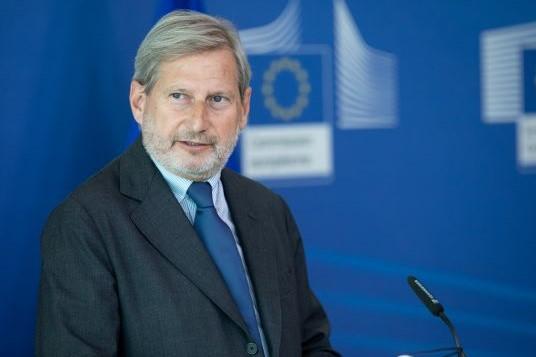
Besides these nine members of Parliament, half a dozen other VMRO-DPMNE members of Parliament faced various charges, of abuse of office and corruption. The single-minded focus of the prosecutors and the judiciary to go after the opposition meant that, at one point, Macedonia had more than 10% of its Parliament members facing charges—all from VMRO-DPMNE or its allied parties—a rate not seen this side of the Bosporus and the Volga for a very long time.
The cases of the few high-level officials who were sentenced in the April 27th trials, and who were not given amnesty, are also highly dubious. Former Interior Minister Chavkov comes from Zaev’s home town of Strumica and was a key figure in a major corruption investigation against Zaev, a well documented case of abuse of office by Zaev, as Mayor, during which a local businessman recorded Zaev asking for a million euros in bribes to allow the sale of state-owned land.
Chavkov was therefore seen as a personal enemy of Zaev and was charged not with conspiring with the protesters, but with failing to predict that the Parliament would be stormed on that exact day, after more than 90 days of peaceful protests, and not having a sufficient number of riot police on hand. The day of the storming was picked by SDSM, in a sense, with their decision to stage a vote to elect a new speaker even after the session was adjourned.
The party gave no warning to the Interior Ministry that it would try to stage a vote that every political observer in the country understood would be seen as highly provocative by the protesters.
SDSM also did not wait for the crowd to disperse, as they usually did in the late afternoon, but staged the vote while a large crowd was still in front of the building, and they also did not use the subterranean exits to leave the building but gathered in the press hall, endangering journalists in the process, and waited for the protesters.
Another Interior Ministry official, Mitko Peshov, was sentenced to 18 years in prison even though he was not even in Skopje during the incident and was not on duty in the crisis center set up by the Interior Ministry to monitor potential disturbances during the protests.

Sasho Mijalkov is Nikola Gruevski’s cousin and was head of the DBK secret service for almost 10 years under Gruevski. The story of the collapse of the rule of law cannot be told without him. He was widely portrayed in the wiretaps during the Color Revolution as a business schemer who amassed a fortune, as well as the mastermind of the wiretapping.
As the main security operative of the party, Mijalkov was clearly involved in organizing the protests that ended with the storming of the Parliament, but he quickly broke ranks with VMRO-DPMNE, supported the name change and helped SDSM get to the 81 votes it needed in Parliament—several of those who broke with the party and voted for the name change are his loyalists.
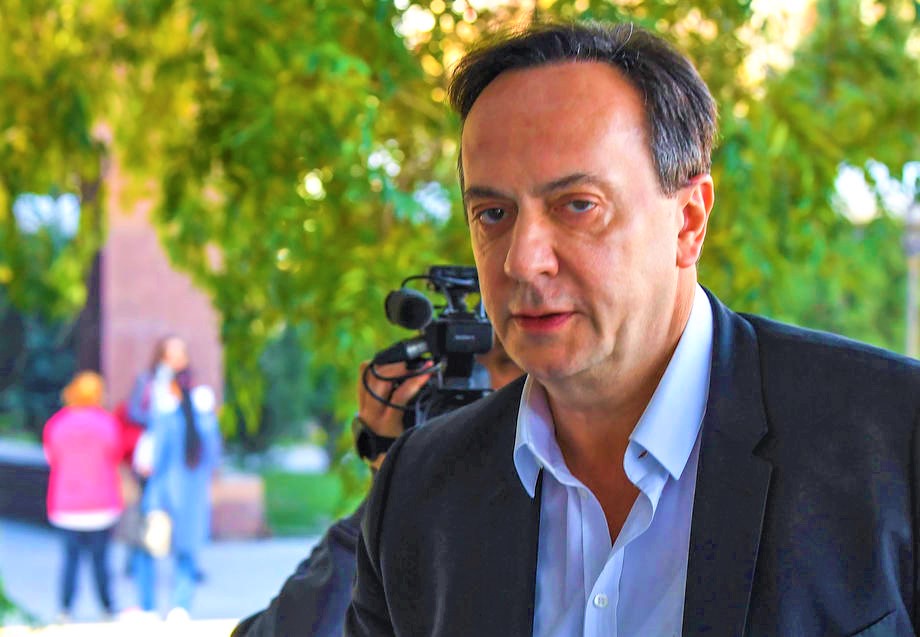
For this, he received preferential treatment by the SDSM regime, even though they depicted him as one step below the Devil during the Color Revolution. He was allowed to flee the country, then ordered to return under international pressure, and currently stays in an open-style lakeside “prison” while overseeing the collapse of some of the key cases against him and helping SDSM drive wedges in VMRO-DPMNE with his remaining influence there.
On the other hand, members of government who refused to play ball with SDSM were singled out for punishment. Gruevski fled the country in 2018 and received political asylum in Hungary.
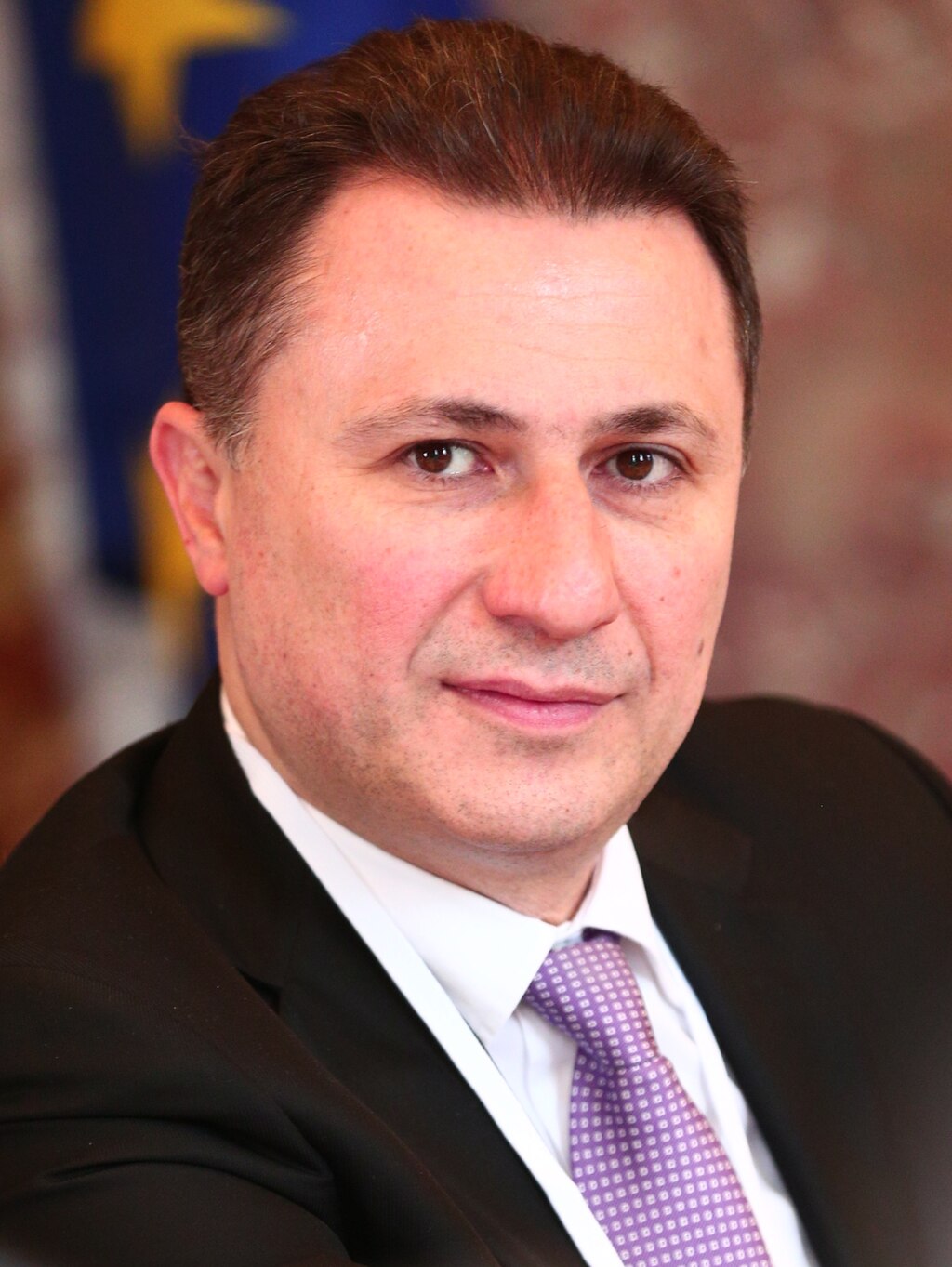
His Transportation Minister, Mile Janakieski faced more than a dozen criminal charges, and has spent the past years in and out of prison and house arrest, to the point that it is a common trope in the public that, whenever something goes bad for the SDSM regime, “it’s time to arrest Mile again” to distract the public.
During his first imprisonment, Janakieski and former Education Minister Spiro Ristovski were put in a prison where a group of Albanian terrorists, who carried out a major attack on the city of Kumanovo in the early stages of the Color Revolution in 2015, were also imprisoned.
Janakieski and Ristovski were sent there apparently on purpose, and on the first day in the prison they were attacked by members of this Albanian group, which came to Macedonia with the declared intent to bring down the VMRO-DPMNE government. Both suffered serious casualties in the clash with the Macedonian special forces. Janakieski spent four years and eight months in house arrest, for numerous charges.
In early July 2023 he was eventually ordered to begin serving a sentence of three and a half years after the sentence in one of the cases against him was upheld by the Skopje Appeals Court.
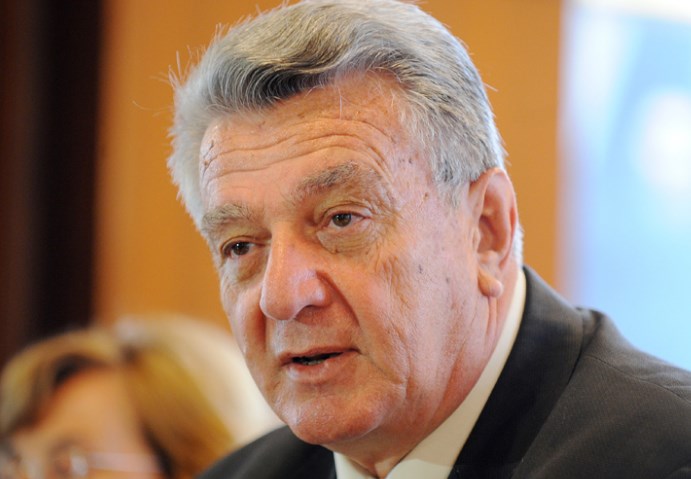
The law clearly states that, if a person is serving house arrest or detention on various charges, and is sentenced in one of the cases, the entire time served is counted toward the sentence—to do otherwise would mean that he is assumed guilty in the still-pending trials.
This means that Janakieski should be released from prison and have a year and several months left over for any possible future prison sentence. But the court decided to divide the time Janakieski spent under house arrest proportionately between the different charges the house arrest was ordered for, and only counts a little over a year served for the crime he is now serving a sentence for.
This clear violation of the law means that Janakieski’s request for immediate release after the sentencing was rejected and he is now in the notorious Idrizovo prison again.

CovertAction Magazine is made possible by subscriptions, orders and donations from readers like you.
Blow the Whistle on U.S. Imperialism
Click the whistle and donate
When you donate to CovertAction Magazine, you are supporting investigative journalism. Your contributions go directly to supporting the development, production, editing, and dissemination of the Magazine.
CovertAction Magazine does not receive corporate or government sponsorship. Yet, we hold a steadfast commitment to providing compensation for writers, editorial and technical support. Your support helps facilitate this compensation as well as increase the caliber of this work.
Please make a donation by clicking on the donate logo above and enter the amount and your credit or debit card information.
CovertAction Institute, Inc. (CAI) is a 501(c)(3) non-profit organization and your gift is tax-deductible for federal income purposes. CAI’s tax-exempt ID number is 87-2461683.
We sincerely thank you for your support.
Disclaimer: The contents of this article are the sole responsibility of the author(s). CovertAction Institute, Inc. (CAI), including its Board of Directors (BD), Editorial Board (EB), Advisory Board (AB), staff, volunteers and its projects (including CovertAction Magazine) are not responsible for any inaccurate or incorrect statement in this article. This article also does not necessarily represent the views the BD, the EB, the AB, staff, volunteers, or any members of its projects.
Differing viewpoints: CAM publishes articles with differing viewpoints in an effort to nurture vibrant debate and thoughtful critical analysis. Feel free to comment on the articles in the comment section and/or send your letters to the Editors, which we will publish in the Letters column.
Copyrighted Material: This web site may contain copyrighted material the use of which has not always been specifically authorized by the copyright owner. As a not-for-profit charitable organization incorporated in the State of New York, we are making such material available in an effort to advance the understanding of humanity’s problems and hopefully to help find solutions for those problems. We believe this constitutes a ‘fair use’ of any such copyrighted material as provided for in section 107 of the US Copyright Law. You can read more about ‘fair use’ and US Copyright Law at the Legal Information Institute of Cornell Law School.
Republishing: CovertAction Magazine (CAM) grants permission to cross-post CAM articles on not-for-profit community internet sites as long as the source is acknowledged together with a hyperlink to the original CovertAction Magazine article. Also, kindly let us know at info@CovertActionMagazine.com. For publication of CAM articles in print or other forms including commercial internet sites, contact: info@CovertActionMagazine.com.
By using this site, you agree to these terms above.
About the Author
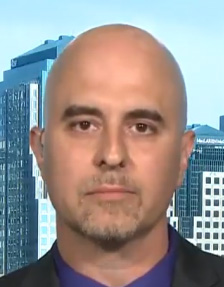
Bill Nicholov is president of the Macedonian Human Rights Movement International.
He can be reached at bill.nicholov@mhrmi.org.




